The world as our classroom
The Ghana Project
It is Wednesday, 2pm. The classroom is quiet as the students selected for this project are yet to arrive. The screen above me crackles and within seconds fifteen sets of eyes are looking directly at me. The smiles follow. ‘Hello, Alex - can you hear me?’ I see Daniel (the teacher) on the screen and the class behind him, sat patiently.
This is the highlight of my school week.
Despite being divided by 8,000km, an ocean and a continent - there is only an hours time difference between the UK and Ghana. With a little imagination, the world has become our classroom, and it is a fascinating place to learn.
Why Ghana?
Africa is a place of huge contrasts and easy headlines. A few years ago, a teacher in Ghana reached out to me via the Hundred.org. Daniel had seen our Future Classroom and was intrigued about the technology and how we organised the learning. After a few initial Zoom calls, we decided to try a live lesson. Post-Covid, live lessons, or ‘hybrid’ as they are now known were not uncommon. However, connecting learners between countries is rare - but, it doesn’t have to be.
The first live lesson was a failure. I quickly learned that Daniel was working with limited resources (he joined the lesson via a single cell phone). The class were huddled around a device and the sound was poor. Every now and then the connection would drop and we would lose the flow of the lesson. Regular storms make internet accessibility hard in the Battor Dugame region of Ghana where is the school is based. Daniel was relying on a generator to power connection. Despite this, his class were attentive and keen to learn.
Lessons were organic, we kind of made up the objectives based on what interested the students. One week we would be focusing on climate change, the next automation. Everything was led by the students. Lesson lasted approximately 30 minutes. I would start with some content to shape the discussions, then students on both sides of the screen would work on solutions in teams. Most lessons ended with some interactions between learners in the form of presentations, questions or competitions. This was the most powerful part. As relationships formed, the young people drove this project with an infectious energy, keen to learn from each other.
I had underestimated the raw power of this project. The cultural richness such learning provides is hard to find elsewhere within our curriculums. Students were fascinated by each other - from home life to hobbies. Despite being worlds apart, kids are kids and they connected on many levels.
Above: a typical lesson showing students in both classrooms
For the children in Ghana, the lure technology was irresistible and at the time, out of reach. They wanted to know about VR (Virtual Reality), AI (Artificial Intelligence) and robotics. Lessons started to focus more on technological solutions and the science of the future. One lesson on the topic of VR and immersive technologies stands out as it changed everything. A young lady called Beatrice said ‘Hey, Mr. Alex - we want to try VR in Ghana, that is my dream.’
That comment alone lit a fire. Shaftesbury School students started to fund raise. We started a Crowd Funding page and reached out to our Future Classroom sponsors. Within months we had raised enough funds to create a Future Classroom in Tema, just outside of Accra in Ghana. One of our students was born in Ghana and travelled there every summer with her family. They kindly offered to transport all the technology to save on huge import taxes. It worked. Daniel found a suitable space and Future Classroom Ghana was born.



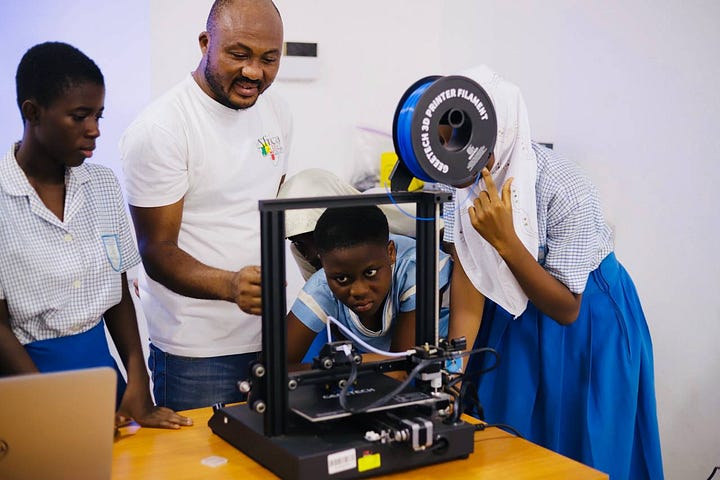

The lessons continued and the impact was immediate. The connection speed improved, as did the sound and visuals. Daniel was able to use the new technology to inspire other children in the region. At this point, I would like to acknowledge the following sponsors and partners who contributed to the project. This is not a sales pitch but a public ‘thank you’ from both sides of the Atlantic.
CatchBox - creators of a soft, throwable microphone. CatchBox team
RedBoxVR - immersive VR providers. RedBox Team
Epson UK - projectors and innovation. Epson Team
VEX Robotics - STEM kits and robotics. VEX Team
SatComs Innovation - satelite connections. Martin Coleman SatComs Team
As the project moves into its third year, we have a clear plan for content. Lessons will focus on three mains areas:
The UNSECO Sustainable Development Goals
Live Science experiments
The EDU Metaverse
School resumes in September. We have plans to run another Hackathon event which involved multiple teams from both Ghana and the UK. As the new term looms, it signals the end of the summer break and normality. As a teacher, it can be hard to adjust. The Ghana project fills me with hope for the year ahead. It is the best part of my week!
For the children involved in the project, their world has grown. Every week, they reach beyond the classroom into the world outside. They leave with their heads up and their hearts strong. They are the innovators, the change makers and the custodians of the future, our future.
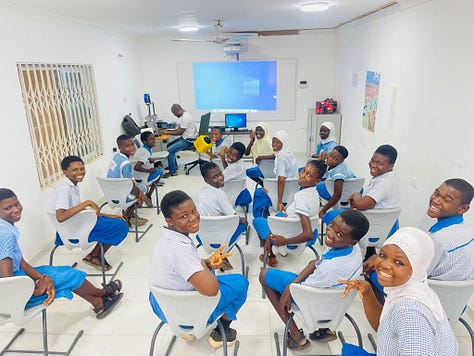
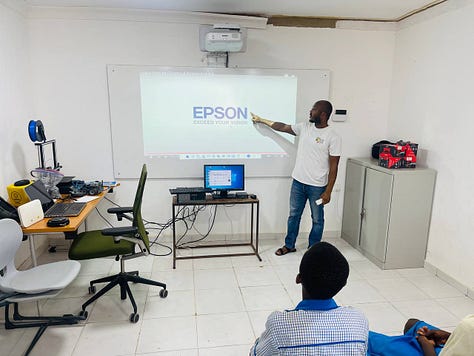

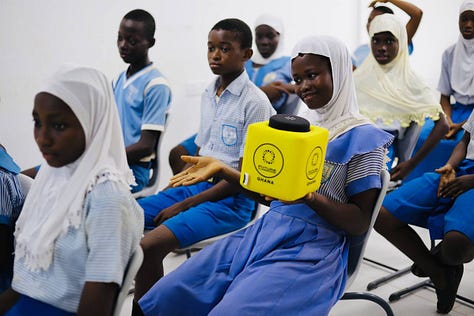
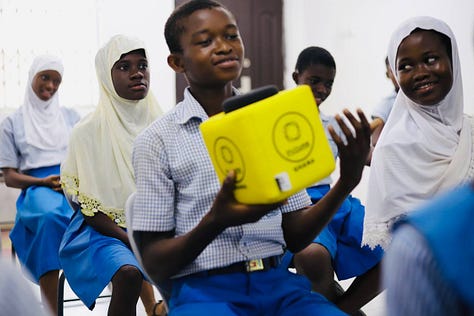
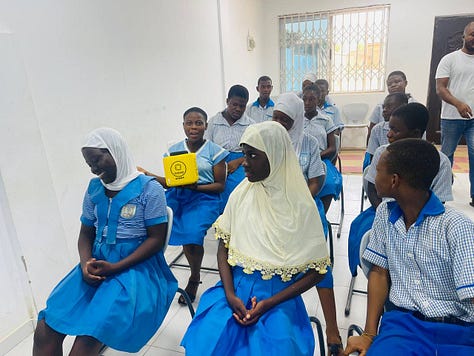
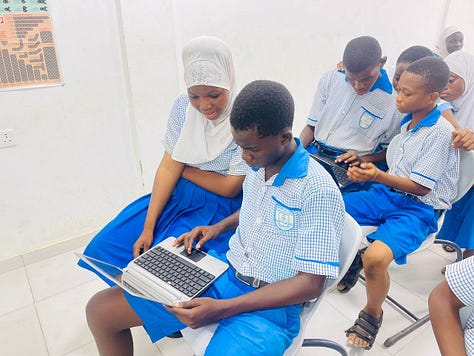


Inspired? Why not try this in your setting?
Meet other educators and innovators via Hundred.Org
This innovation was part of the Hundred Global showcase, ranking high on scalability within other contexts and impact in both settings. If you are an educator working in another country and would like to be part of our next Hackathon event, email: alexmorelearning@gmail.com. If you are an EdTech provider who would like to share your product with us - drop us a line. Equally if you are interested in any of the technology used in the Future Classroom, I can connect you to the companies directly.
Africa ICT Right host the school in Tema, Ghana and I work at Shaftesbury School, part of SAST


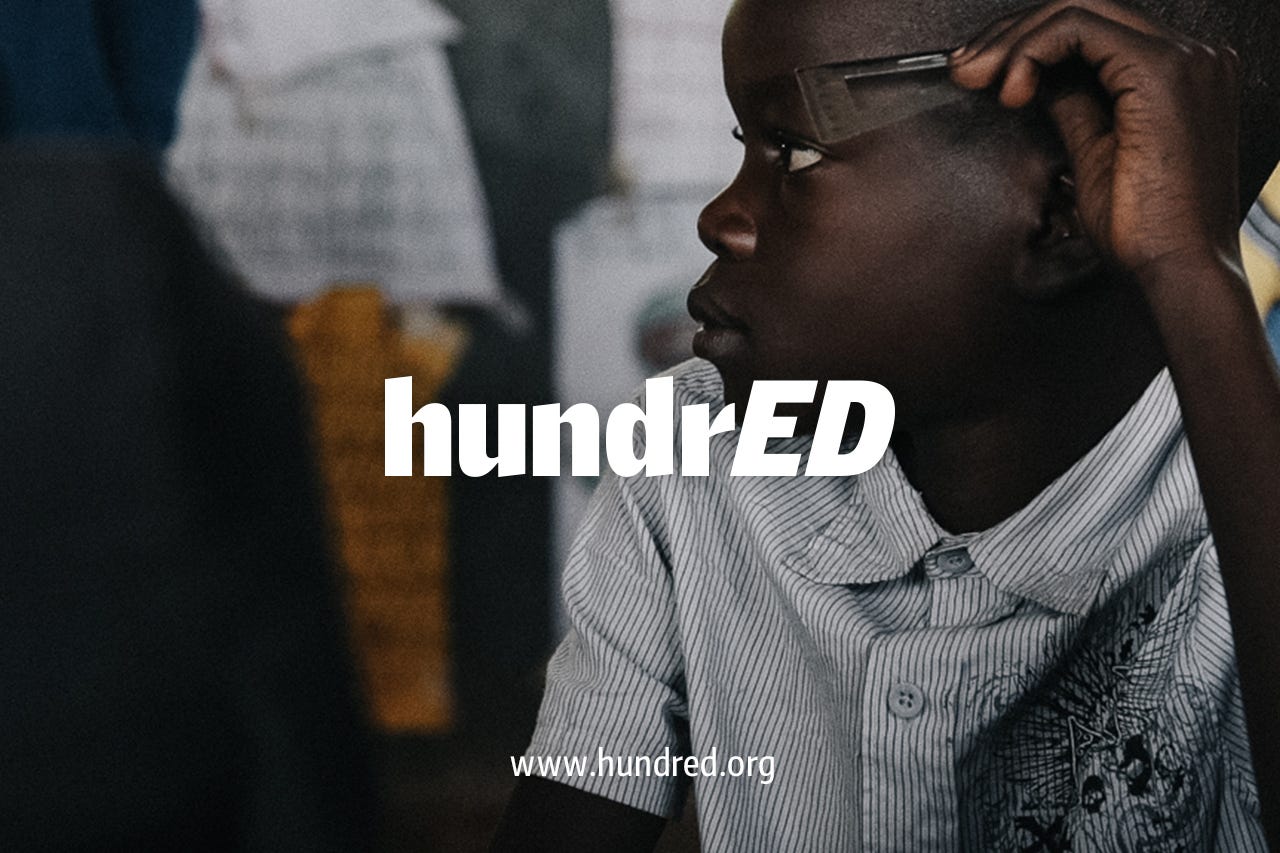
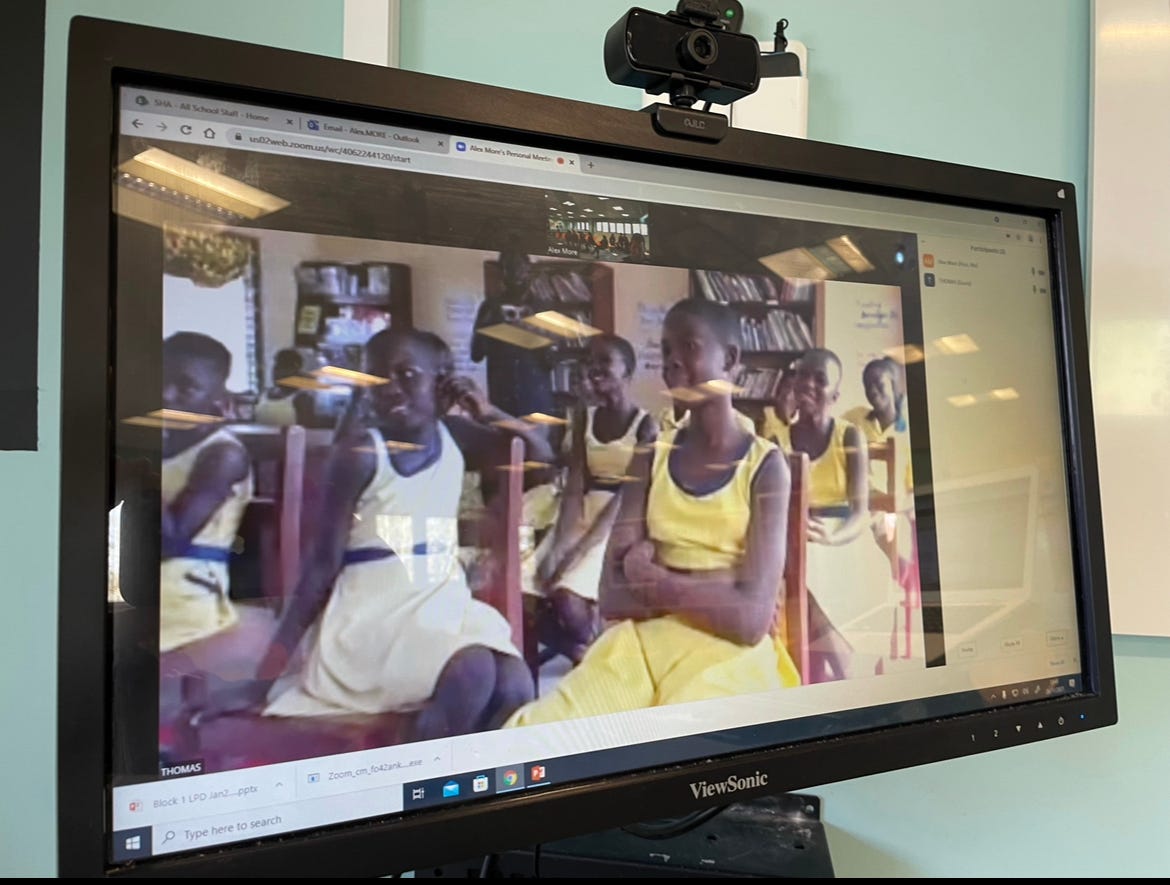

Really lovely reading Al. Nice to read something free of jargon and teach-speak and so full of hope. Nice one!